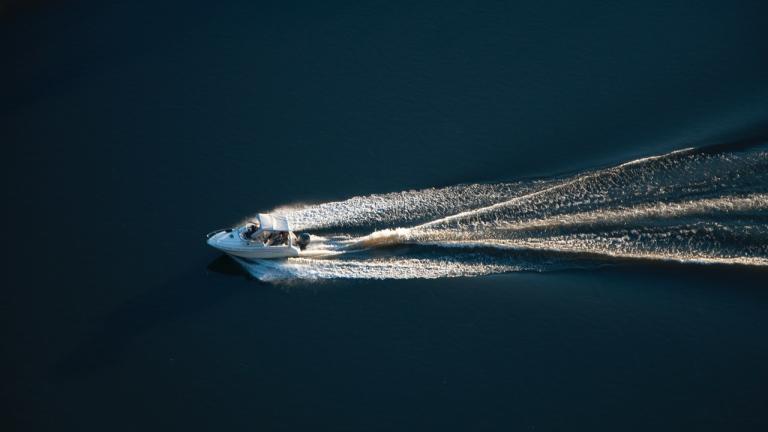May 21 through May 27 is National Safe Boating Week - a time to study boater safety tips and best practices. To mark the occasion, the MMYH team is revisiting the following article published last summer.
.---------------------
Today’s Make Macomb Your Home blog safety feature focuses on boating - because according to the Macomb County Sheriff Marine Division, we’ve now entered the high season for accidents.
“Our busy season begins Memorial Day and runs through Labor Day, depending on the weather,” said Lieutenant Tina M. Old. “For instance, in 2019, we had approximately 54 search and rescue calls - meaning boaters in distress, missing boaters, capsized vessels, etc.”
The Marine Division is tasked with patrolling 85-square-miles of Lake St. Clair, the one-mile international border with Canada, 30-miles of shoreline, the Clinton River, the Salt River and the Black Creek. To ensure the safety of their community, the division works with U.S. Homeland Security, the Michigan DNR, U.S. Customs & Border Patrol, Selfridge ANG Base, the Ontario Provincial Police, Wayne County Sheriff's Marine, St. Clair County Sheriff's Marine, the U.S. Coast Guard Sector Detroit and St. Clair Shores, Harrison Township Fire Rescue, St. Clair Shores Police, and the Chesterfield and New Baltimore Police Departments.
“We have 4 full-time sworn officers - one lieutenant, one sergeant and two deputies year-round, and then 74 marine safety officers,” Lt. Old said. “In the summer months, we increase our complement with four additional deputies and we also have 12 certified master divers, all of which are full-time sworn officers.”
The team’s fleet includes nine boats, four jet skis and six kayaks. They receive training in ice rescue, CPR, first aid, boating and firefighting.
“The Sheriff's Marine Division is the only full-time department on Lake St. Clair that has the ability to fight boat fires.,” Lt. Old said. “We have three portable pumps that can be used on shore for drafting operations for fire departments in addition to three of our boats, which are equipped with fire pumps that are capable of using biodegradable foam for fire suppression on the lake.”
In addition to patrolling and rescuing duties, the Marine Division executes an expansive public education program.
“We teach boater safety to 7th grade students throughout Macomb County,” she said. “On average, we instruct over 6,000 students in both the public and private school systems. We also offer evening classes for Macomb County residents. All free of charge.”
If you plan to get on the water this season, the MMYH blog is sharing the following safety tips compiled by the Michigan DNR:
- Wear a life jacket
- Accidents happen, be prepared. Life jackets float – you don’t.
- Drowning was reported as the cause of death in 76 percent of all fatalities – meaning that four out of five people died from drowning.
- 84.5 percent of people who drowned in a recreational boating accident were not wearing a life jacket.
- Boat sober
- Alcohol use is the leading known contributing factor in fatal boating accidents. Where the primary cause was known, it was listed as the leading factor in 19 percent of deaths.
- Alcohol can impair a boater’s judgment, balance, vision, and reaction time. It can also increase fatigue and susceptibility to the effects of cold-water immersion.
- Check your boat before going out on the water
- Make sure the boat is properly equipped and equipment is in good working condition.
- In addition to legally required equipment such as life jackets and fire extinguishers, always carry a first-aid kit, nautical charts and an anchor.
- Make sure navigation lights work properly
- Ensure the cabin of your vessel has appropriate ventilation to prevent carbon dioxide poisoning.
- Have a float plan
- Inform someone who is not boating with you about the details of your trip including:
- Where you will be boating and the route you plan to travel
- How long you will be gone
- When you plan to return
- Schedule check-in times
- Phone numbers for the local emergency dispatch center and U.S. Coast Guard in case you don’t return on time
- Inform someone who is not boating with you about the details of your trip including:
- Stay alert
- Watch for other boats, swimmers, skiers and objects in the water. This is especially true when operating in crowded waterways, at night and when visibility is restricted.
- Be aware of commercial fishing nets and buoys. Orange flagging may indicate a net is located in the water. Nets can also break away and float at the surface of the water, causing entanglements with boats.
- Carry a cell phone or a marine radio
- Be prepared to call for help if:
- You are involved in or witness an accident
- Your boat or the boat of another becomes disabled
- You need medical assistance
- Be prepared to call for help if:
The top five contributing factors in boating accidents are operator inattention, improper lookout, operator inexperience, machinery failure and alcohol use. By following the above guidelines, you can reduce those risks. However, if you need to reach the Macomb County Sheriff Marine Division, the non-emergency number to the boathouse is 586-469-5803 or Marine Radio channel 14 and the emergency number is 911 or Marine Radio channel 16.
Stay safe Macomb County!
Megan Ochmanek is a communications specialist for Macomb County Planning and Economic Development.







